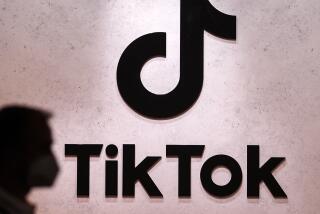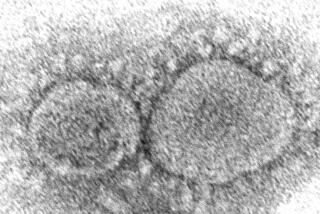Patent changes pick up steam
- Share via
WASHINGTON — The House on Friday passed the most significant change to the patent system in 50 years, a sweeping update to the complex process for granting exclusive rights to inventors.
Supporters said the legislation, approved 220 to 175, would weed out questionable patents and deter lawsuits that hindered U.S. innovation.
Under the bill, experts in a specific field would be allowed for the first time to submit their views about pending patents before they were granted. The measure also sets up a new procedure for reviewing patents after they are granted as an alternative to legal action.
Supporters hope the House vote will boost prospects in the Senate. A similar bill passed a Senate committee this summer.
The legislation could lessen the importance of patents. Consequently, some powerful interests are choosing sides, depending on the value of patents to their businesses.
Information technology companies such as Microsoft Corp. and Apple Inc. support the overhaul. In an industry in which products change rapidly, the biggest players say reforms are desperately needed to stave off expensive lawsuits that divert money from research and development.
But pharmaceutical and biotechnology companies such as Amgen Inc. and Procter & Gamble Co., which depend on strong patent protections to justify their investment in the lengthy and expensive drug development process, warn against tinkering too much with a system they say has served the country well for more than two centuries.
The bipartisan push for the bill, in the works for three years, has been fueled by a flood of applications in recent years that has overwhelmed the U.S. Patent and Trademark Office. Critics say the barrage has led to thousands of dubious patents.
Some companies have used those patents -- which remain in effect for 20 years -- to threaten lawsuits, forcing out-of-court settlements and expensive trials.
If the bill becomes law, “it means that we will have a patent system . . . focused on rewarding innovation rather than rewarding litigation gamesmanship,” said Mark Chandler, vice president and general counsel for computer network equipment maker Cisco Systems Inc.
Some recent high-profile patent suits, including a record $1.52-billion jury award against Microsoft in February over digital music patents held by Alcatel-Lucent, helped vault the legislation to passage.
That verdict was recently overturned. But the case, and one last year against Research in Motion Ltd. that threatened to shut down the company’s popular BlackBerry wireless e-mail service, mobilized information technology firms. They pushed aggressively to make it easier to challenge patents and harder to win large damage awards.
The White House said Thursday that it opposed part of the legislation, particularly a provision that would allow courts to calculate damages based on the value a patented component brings to a product rather than on the product’s entire value.
Rep. Howard L. Berman (D-Valley Village), who has championed the legislation, promised to address the issues when House and Senate negotiators try to reconcile differences in the two bills.
“I wanted to start with a pretty strong reform,” Berman said after the bill passed. “It is the single most controversial part of the bill remaining.”
Opponents complained that the complex bill was rushed to a vote and branded it a cave-in to powerful technology companies.
“This bill will weaken patent protection by making patents less reliable,” said Rep. Michael H. Michaud (D-Maine).
Also raising concerns are some large manufacturing companies, including General Electric Co., Corning Inc. and PepsiCo Inc., as well as some labor unions and an association of intellectual property lawyers.
Joining computer and information technology companies in support of the overhaul are major financial services companies and some consumer groups, including Consumers Union.
Much of the bill is designed to address patent lawsuits, which more than doubled in number from 1990 to 2005.
In addition to the change in the way damages may be calculated, the legislation limits the ability of lawyers to file patent suits in locations that have no connection to the case but whose courts have previously awarded large verdicts.
--
More to Read
Inside the business of entertainment
The Wide Shot brings you news, analysis and insights on everything from streaming wars to production — and what it all means for the future.
You may occasionally receive promotional content from the Los Angeles Times.











